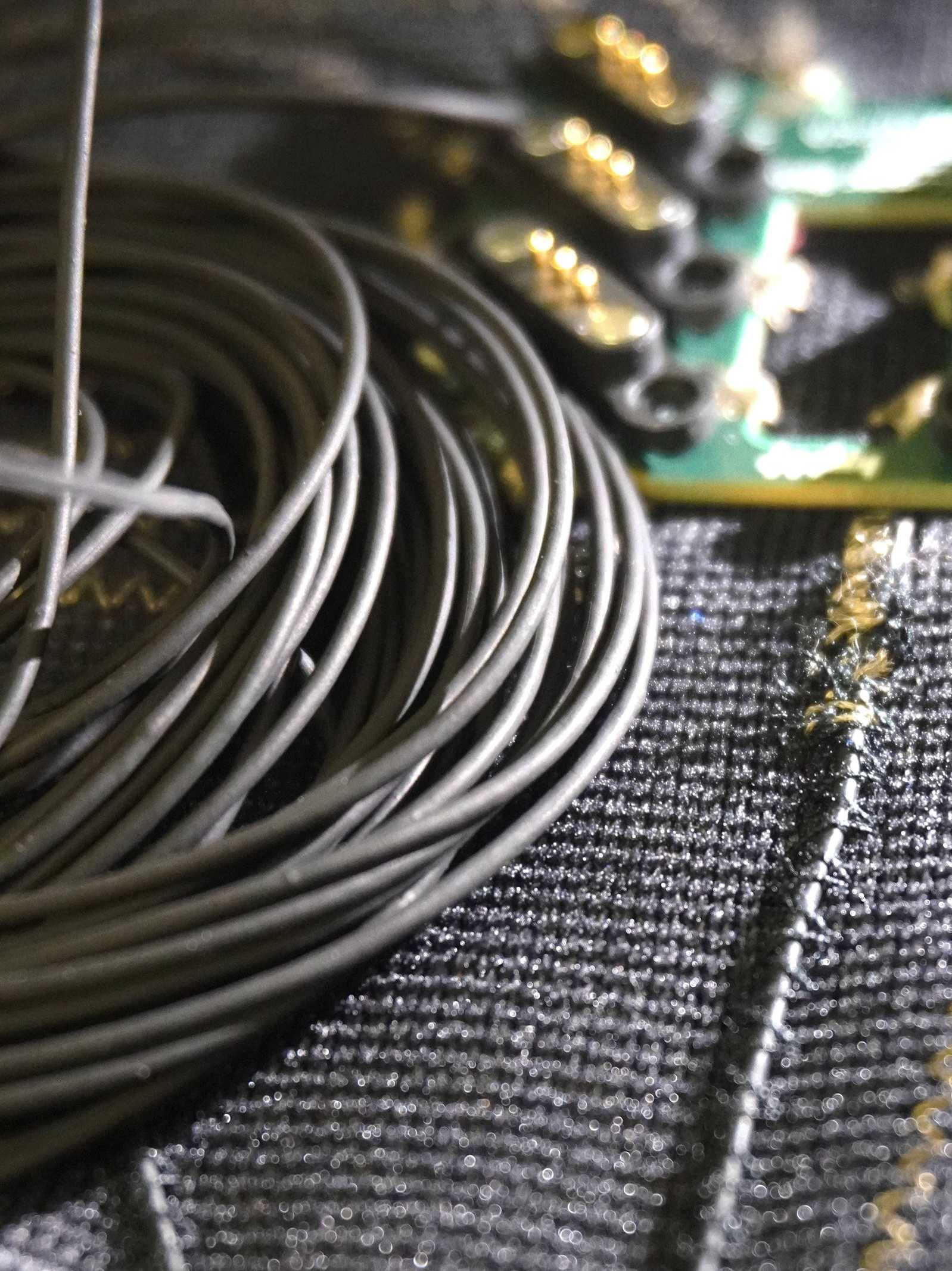Advanced Wearable Materials
Both the scientific community and the general population are paying more and more attention to wearable sensing. The resulting demands for the miniaturization of technology and the need for new functionalities require extensive research into materials that can be used in such sensors.
We develop new materials for functional textiles, wearable and point-of-care sensing applications. We develop new synthetic pathways to functional cross-linkers, surface modification agents, chemosensors, and components of sensitive membranes.

We develop e-textile production methods that can be compatible with already existing textile industries. For example, we study in situ polymerization on textile substrates, analogous to the processes carried out in the dye-houses; we develop approaches to sustainable upcycling of natural and manmade fibers that eliminate waste and produce functional fabric at the same time.
Significant effort is directed towards novel composite materials: electrically conducive or dielectric elastomers used for strain sensing, fabric-based semiconductors and luminescent fibers. We develop not only the fabrication methods but also upscaling protocols to produce hundreds of meters of smart materials.
Contact: Dr. Alexander V. Shokurov